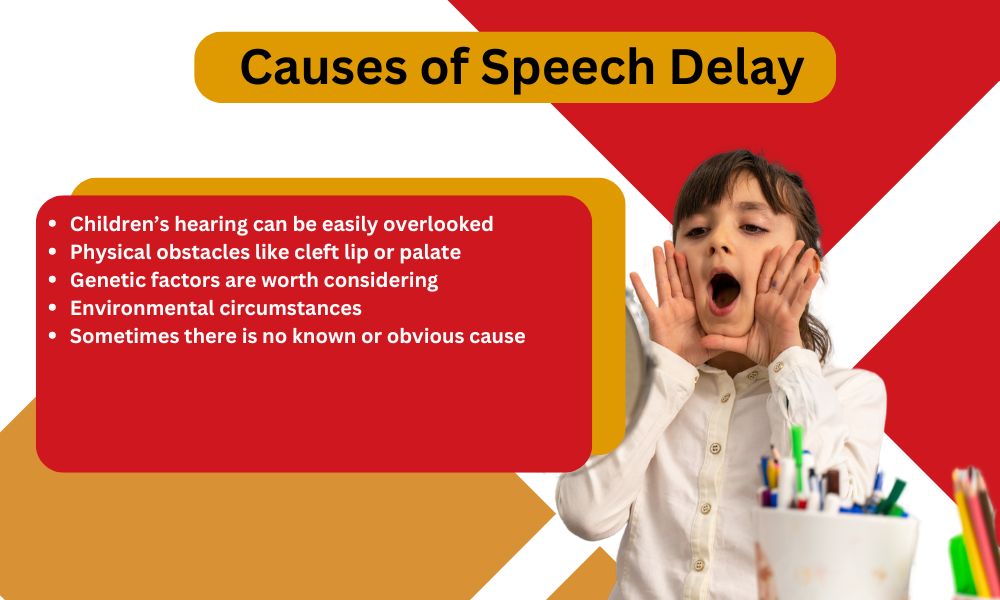The right speech therapy activities help toddlers to learn and explore language in a way that best suits their learning abilities.
Toddler speech therapy is essential for early development.
Children learn to speak by imitating those around them, and begin their journey to communication from the moment they can hear.
Immersing your child in an environment where everyone verbalises using a mix of language styles and vocabulary, and where your child has the opportunity to communicate with others, are the best surroundings to start speech.
Here are some common causes of speech delay, and some simple exercises and activities to help enrich all children’s communication and speech.
Common causes of speech delay

- Children’s hearing can be easily overlooked, but this is easily tested. If a child cannot hear effectively, they may be delayed in repeating any sounds they do hear, or could mispronounce them.
- Physical obstacles like cleft lip or palate, or large tonsils and adenoids can also interfere with speech development.
- Genetic factors are worth considering – are there relatives who were slow to speak as children?
- Environmental circumstances may also play a role in why a toddler is speech delayed.
- Sometimes there is no known or obvious cause.
Toddler Speech Therapy Activities
As with most conditions, early diagnosis of a speech delay and intervention of a qualified therapist give the greatest results.
There are many simple speech therapy activities that can be undertaken on an ongoing basis.
Talking with children from birth will assist with language development in all children. Usually children will understand a lot more than they can answer.
It is important to allow pauses for the child to respond, even in infants.
Foster sharing information and telling stories, whether they be from a book or a recount of an activity, with your child. Find a topic your child loves, and engage in discussions about this subject.
Reading books can help to diversify language on a theme, whether reading the text or discussing the pictures.
Maintaining eye contact and with it the attention of the speakers is important when learning and teaching speech.
Taking turns in speaking, singing songs or nursery rhymes whilst facing each other is a great activity.
Using gestures like pointing or waving whilst speaking your message can help to convey meaning.
This can be a useful tool for children to use in communication when speech is lacking.
Praise your child’s efforts with speech, by speaking back to them when they speak.
If they make grammatical errors, model the correct words to them rather than criticizing their accomplishment.
Avoid trying to complete your child’s words or sentences for them, and congratulate them when language is enunciated correctly.
Some children may benefit from exaggerated pronunciation of sounds, with clear demonstrations of the mouth shapes required to form the sound.
Speech therapy activities for toddlers is largely about helping them to experience and practice speech and giving gentle encouragement along the way.
If your child needs further assistance, our Speech Pathologist in Melbourne can help.
If you are concerned about your child’s progress please seek the assistance of a qualified speech pathologist.
Vince Borg, Vicky Andrews, Genevieve Tierney, Rochelle Vizelman, Rachel Saldanha, Jocelyn Leung, Dr Lisa Furlong and Ella Mechelan all have a special interest in speech development and language difficulty. Book your child an appointment with a speech therapist at Box Hill Speech Pathology Clinic on (03) 9899 5494 or direct your child speech therapy questions to enquiries@speech-therapy.com.au.


This particular piece was a wake-up call for me. I say I’ve read about that like hundred times yet this time is different somehow.
Thanks a lots for writing this.
We are glad to hear this! Please make sure to check out our other blog articles too as they contain lots of great information, resources and tips on helping your kids to develop strong communication skills.